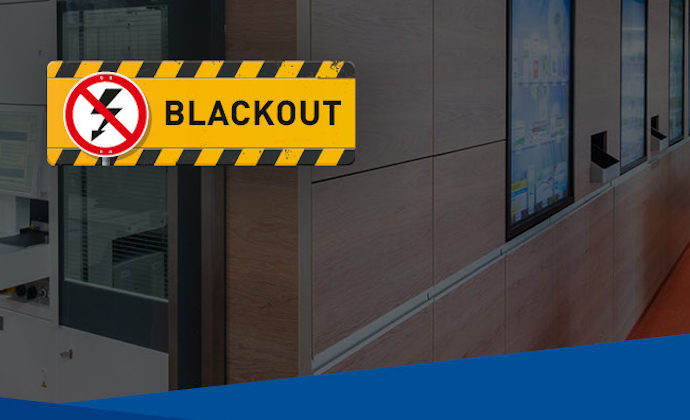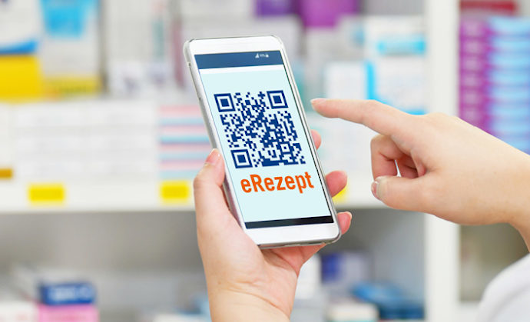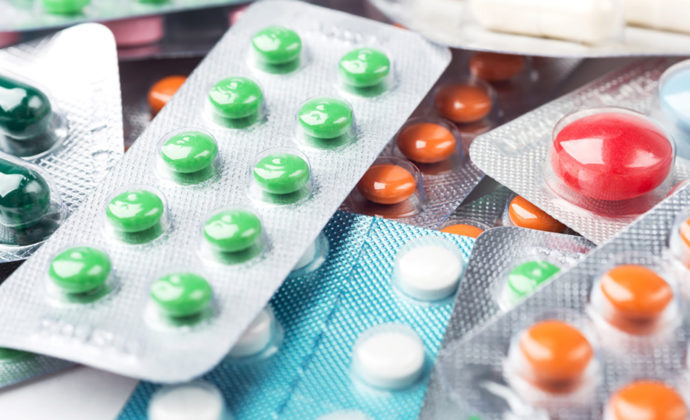
Protection Against Medicine Falsification
You would like to know more?
Contact us
Introduction to the New Security System (securPharm)
What Does it Mean in Practice?
The European protection system for medicines (FMD) adds a great deal of extra security to the legal supply chain – to the benefit of pharmacies, patients, and everyone else involved. In Germany, the appointed entity is securPharm, an organization of the pharmaceutical, wholesale, and pharmacy associations. It has developed a verification process with which compliance along the entire length of the medicine supply chain has been mandatory since February 2019.
Basic Features of the Protection System
The protection system comprises new packagings, which offer added security against falsifications, and a digital system for verifying each individual packaging. It is based on EU Directive 2011/62/EU for protection against medicine falsification (FMD).
Almost all prescription medicines will need to include the security features in the future. Non-prescription medicines only “require verification” if they are placed on a central blacklist as a result of a high falsification risk. To date, this only applies to omeprazole in the 20 mg and 40 mg doses.
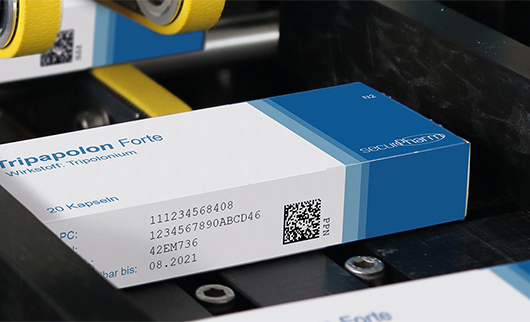
Security Features on the Packagings
The packagings include two security features: one is a seal which is irreparably damaged during opening and thus protects against tampering. The other is a machine-readable, two-dimensional data matrix code. Among other things, this includes the following information:
- Serial number – unique to every packaging
- Product code / PZN (German NDC)
- Batch number
- Expiry date
As such, the packagings now form the fundamental starting element for digitally supported end-to-end control. The manufacturers are obliged to introduce packagings with the additional security features and to create, print, and record the unique serial numbers. Since February 9, 2019, they are only allowed to bring verifiable packagings into circulation. Pharmacists have been required to perform the security check of the packagings in question since that date. It is obligatory to perform the check in the sale situation, directly before the handover to the customer. An additional, earlier security check during the incoming goods process is also possible and recommended.
Control via Two Secure Databases is Also Advantageous for Data Prevention
The security check begins with a scan of the data matrix code. The subsequent data transfer for the check should generally only take a few seconds. A number of steps are performed in this short time:
- The system sends the serial number contained in the code to the central pharmacies database first of all.
- The pharmacies database forwards the query on to a second central database operated by the manufacturers.
- This is where the actual check is performed: if the serial number is listed in the manufacturers database and not yet reported as being “sold”, the database approves the sale.
- The data are sent back to the pharmacy in the reverse order, and the pharmacist may hand the medicine over to the customer.
- In the case of unknown serial numbers or ones which have been used twice, a warning is issued – the medicine must be sorted out and the case investigated further.
The advantage of the two-server solution: the manufacturers are not aware of the sales and movement of stocks in the individual pharmacies, as the central pharmacies server does not provide this information.
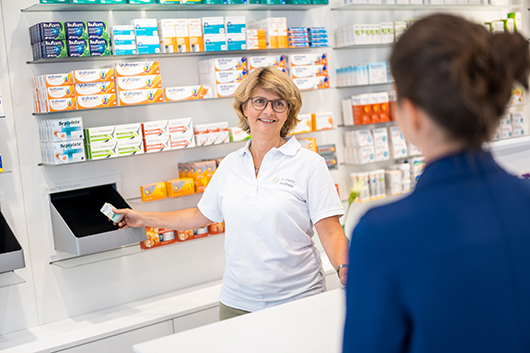
Handing the Medicine Over to the Customer: Booking out of the Packaging
Pharmacists also have a second obligation when handing the medicine over to the customer: they must ‘book out’ the sold packaging from the system. If the serial number subsequently appears at another location, the database reports its suspected falsification. Booking out is a one-time process. The earlier security check via the securPharm protection system can be performed several times if necessary. The protection system offers greatly enhanced security for pharmacists and customers alike. According to a study, it would have made it possible to prevent all cases to date.
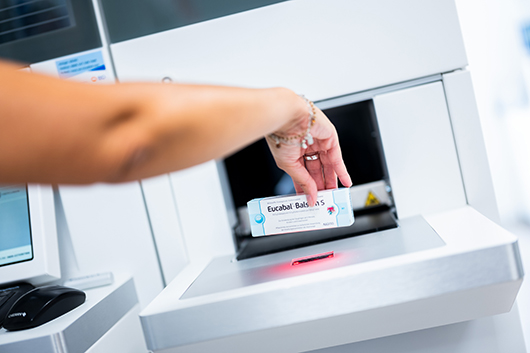
Safe and Secure with an Order Picking System
Customers with a pharmacy robot can utilize a number of advantages when preparing for the security check. Many systems are already equipped with readers (scanners), which can read the 2D code. The information contained in the code is communicated to the ERP system in order to allow the security check as part of the incoming goods process.
This is recommended for a number of reasons. For one, it makes it possible to identify and sort out suspicious packagings in advance without awkward warnings in the customer’s presence and the associated uncertainty. For another, the scanning of the data matrix code also makes all the requisite information available in one go – including the expiry date, batch number, and PZN (German NDC). The machine sends the data to the pharmacy’s ERP system automatically and documentation is complete.
You might also be interested in
Blackout in the pharmacy: What to do when nothing works anymore?
First Covid-19, then war in Europe, and now, an energy crisis. For years we have been moving from one crisis to the next, which was previously unthinkable. But, even if the first two are still red-hot and far from forgotten, the next topic is already waiting to be considered: ENERGY.
E-prescriptions and dispensing terminals
New opportunities for local pharmacies. E-prescription is bringing innovations that will simplify everyday pharmacy work.
Pharmacies’ last-mile delivery service – what will the e-prescription change?
Patients have focused more on Pharmacy last mile services during the global COVID-19 pandemic – how should pharmacies position themselves in the future?
